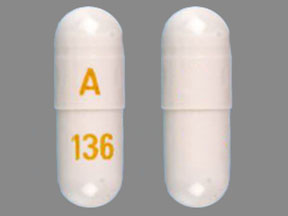Celecoxib and Alcohol/Food Interactions
There are 2 alcohol/food/lifestyle interactions with celecoxib.
Alcohol (Ethanol) Celecoxib
Moderate Drug Interaction
Consumer information for this interaction is not currently available.
GENERALLY AVOID: The concurrent use of aspirin or nonsteroidal anti-inflammatory drugs (NSAIDs) and ethanol may lead to gastrointestinal (GI) blood loss. The mechanism may be due to a combined local effect as well as inhibition of prostaglandins leading to decreased integrity of the GI lining.
MANAGEMENT: Patients should be counseled on this potential interaction and advised to refrain from alcohol consumption while taking aspirin or NSAIDs.
Switch to professional interaction data
Celecoxib High Blood Pressure (Hypertension)
Major Potential Hazard, Moderate plausibility
NSAIDs - fluid retention
Fluid retention and edema have been reported in association with the use of nonsteroidal anti-inflammatory drugs (NSAIDs), including some topical formulations. NSAIDs (including topicals) can lead to new onset of hypertension or worsening of preexisting hypertension, either of which can contribute to the increased incidence of cardiovascular events. NSAIDs should be used with caution in patients with preexisting fluid retention, hypertension, or history of heart failure. NSAIDs should be avoided in patients with severe heart failure unless the benefits are expected to outweigh the risk of worsening heart failure; if an NSAID is used in such patients, they should be monitored for signs of worsening heart failure. Blood pressure and cardiovascular status should be monitored closely during the initiation of NSAID treatment and throughout the course of therapy.
Switch to professional interaction data
Celecoxib drug interactions
There are 461 drug interactions with celecoxib.
Celecoxib disease interactions
There are 9 disease interactions with celecoxib which include:
- asthma
- fluid retention
- GI toxicity
- rash
- renal toxicities
- thrombosis
- anemia
- hepatotoxicity
- hyperkalemia
More about celecoxib
- celecoxib consumer information
- Check interactions
- Compare alternatives
- Pricing & coupons
- Reviews (283)
- Drug images
- Latest FDA alerts (3)
- Side effects
- Dosage information
- Patient tips
- During pregnancy
- Drug class: cox-2 inhibitors
- Breastfeeding
- En español
Related treatment guides
Drug Interaction Classification
| Highly clinically significant. Avoid combinations; the risk of the interaction outweighs the benefit. | |
| Moderately clinically significant. Usually avoid combinations; use it only under special circumstances. | |
| Minimally clinically significant. Minimize risk; assess risk and consider an alternative drug, take steps to circumvent the interaction risk and/or institute a monitoring plan. | |
| No interaction information available. |
See also:
Further information
Always consult your healthcare provider to ensure the information displayed on this page applies to your personal circumstances.


